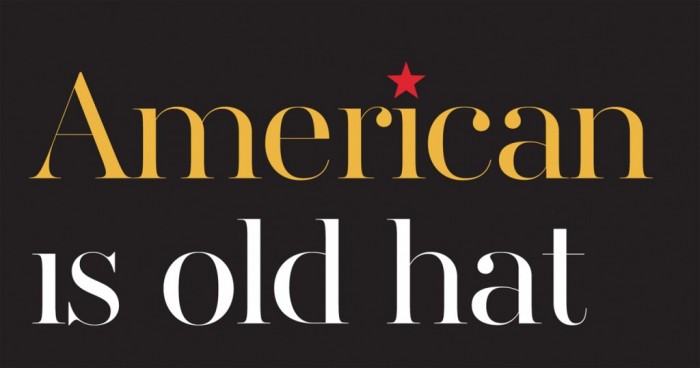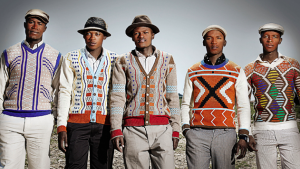From the Series
First Published in

What are the most distinguishing features of an African market?
As a Briton who has lived and worked on this continent for 18 years, I have a visceral reaction to that question. Let me tell you why I have stayed in Africa. African markets are optimistic in the face of enormous challenges. African markets are places where government plays a limited role in bringing positive change. So people find kindred spirits and businesses find business partners, and together we get on with stuff. African markets offer the potential for true collaboration, because cynical short-termism doesn’t work. African markets are young and enthusiastic; we lean towards iconoclasm because we know the “old guard” have failed. African markets are open to possibilities, but require courage. The meek, the moderate and the risk averse should take a rain check.
What defines the African youth market?
My goodness that changes every week! We used to see the very strong influence of American culture, perhaps as part of the backlash to colonial heritage. Now we see a surprising mixture of influences. Mother tongues and traditions rub shoulders with cultural mores from the former colonial powers, brought up to date by travel for tertiary education and business. And this influence spreads through extended families to rural areas, so it’s not limited to the urban elite. Mind you, behaviours we used to call elitist are becoming more mainstream. Air travel within the continent is becoming more affordable. And the middle class is swelling, bringing with it a mixture of need for stability and desire to demonstrate material wealth. Perhaps the most exciting feature of young African life is the huge appetite for participation in the life of the world, and the determination to master new channels to learn and participate.
In South Africa it is widely assumed that the most prevalent technology among the youth is cellphones and Mxit. What technologies are prevalent in the rest of Africa?
Social sites are huge news and Facebook leads the way (verified by TNS RMS “Digital Life” survey). In Kenya for example there are some 5 million Facebookers, with an average of over 200 friends each. It seems to me that internet networking is the perfect vehicle for naturally sociable Africans. Nor is professional development ignored. You would be amazed at the number of young and ambitious Africans who are linked to business and political leaders on LinkedIn and similar offerings. The ability to transact safely on the internet imposed some delay on commercial sites, but millions have access to iTunes and trading sites like eBay now. Local trading sites like Dealfish and Uzananua are encouraging Africa to get trading on the ’net.
The telcos pioneered these channels, and have produced world-leading solutions to consumer needs like money transfer for the unbanked, between mobile networks, and even between bank accounts.
Android technology is lowering internet access to below US$75 already, so widespread internet engagement is perhaps only a year or two away.
Sometimes people say that South Africa and Egypt are not really part of Africa. Are the youth markets in all African countries similar enough to be conflated into one generalisation?
Egypt is not Arabic, but neither is it really part of Africa. Except in terms of becoming a manufacturing base for Africa. Egypt is more Mediterranean, and is more swayed by the currents of the North African and southern European coastlines. My observation is that youth culture there aspires to more global participation, as we do, but there the similarities end.
South Africa is another matter altogether. The sooner the artificial distinction between South Africa and Africa is dropped, the better for all of us. I suspect its origins lie in the ruins of apartheid, and in the insecurity of the emerging black middle and professional classes. Whatever the cause, South African behaviour in business strike us as unnecessarily arrogant. And have caused South African businesses and their shareholders many rands in missed opportunities.
I think that youth behaviours and influences reveal some similarity between South Africans and young people in their Anglophone satellite nations such as Namibia, Botswana and, maybe, as far north as Zambia. But I don’t see much homogeneity beyond that. Time to reach out further, and to listen more.
What are the biggest misconceptions about the youth market in Africa?
That it is poor in terms of education, disposable income and aspiration. Look at any youth bank account marketed in Africa. They miss the mark so widely that one might almost say, “If you want to engage young people, do exactly the opposite!”
You’re quite adamant that every major brand should be primarily a youth brand. Please explain?
Actually there is a nuance here that you are missing. I wrote that any significant brand in Africa should find a way to appeal to young people. That’s not the same as being a youth brand. It might be better described as being young at heart. I said this for two reasons. One, as we all know the majority of the continent’s population is young. Not just young, but exposed to choices and change in a way no young generation has before. Accelerating from zero to hero, from dead beat to dead set, from the 19th century to the 21st. Almost in one breath.
And two, my observation of the governments, NGOs and brands that talk to Africa, is that they are stuck in a damn deep rut. Paternalistic at best, patronising at worst. Dull, formulaic and smug. This has to change if they expect Africa to listen to them in future.
How are young people’s attitudes to mother culture, elders and the government changing?
Mother cultures seem to be held close to African hearts. It may not be aspirational to converse in one’s mother tongue. But traditional values, ceremonies, permissions and taboos provide a comforting framework for young modern Africans. Providing they can be squeezed into a modern lifestyle that is time poor. I think we’d all welcome “Mother Culture Lite”.
One of the positive features of African society remains the tolerance and in some cases veneration shown towards older people. As a 50 year old, I would say that! But I truly sense very little of the antagonism between youth and experience that we see in Western societies. Older people provide roots, networking opportunities, tips for success and warnings about recklessness. Sure, young people don’t feel so obliged to seek permission as much as they once did. But relationships between young and old are surprisingly polite and accommodating.
Governments in Africa need to pay close attention to young people. This generation are well informed, competitive and less tolerant of failure. And if they need examples of failure – in leadership, altruism, morality or effectiveness – none of them need to look further than their own national political class. No one would be more critical of Gbagbo’s shameful procrastination. And, by contrast, when political leadership shows an example (like the recent smooth transition of power in Ghana) no one is more appreciative than “the Youth”.
Does the term “Afripolitanism” describe the youth too, or is it significant of an older market?
As I understand it, Afripolitanism was first defined in an artistic context. This in itself is refreshing. A key tenet of Afripolitanism is a refusal to identify with any kind of victim culture. Regardless of the iniquities still blighting our continent.
So I see a clear fit with young attitudes. With the millions of young Africans who are not prepared to excuse tardy development by making irrelevant historical references. With young people prepared to take responsibility for failure as well as credit for success. As such, Afripolitanism seems to me more commendable and more altruistic than “African Renaissance”.
There is always a lot of talk about how America effects African culture, but what about the opposite? What do you make of the new viral antics of the likes of Die Antwoord and Spoek Mathambo? Can the African youth be global trendsetters?
As I mentioned earlier, I see American cultural influence on the wane. No doubt the spread of Islam is having an effect. But I sense that this is more an issue of “old hat” than “new prophet”. Many Africans have “done” the American thing. We’d prefer something more original now. I wonder whether the realisation that Barack Obama was human, and more than occupied with domestic issues in his home country, has contributed to this?
Young Africans can indeed influence the world. And are harnessing the power of the ’net to do just that. Recently I asked one of our Y&R Companies in the US to take a peek at brand reputation online in Africa. VML have a fantastic tool called “Seer” that enables them to monitor and model web conversations for clients. Let me tell you that the impact of the top 30 bloggers in Nigeria, Kenya and South Africa was significant. Not least in the volume of their streamed content to formal and social sites.
If the average age of Africans is under 20, there is a massive emerging generation that will take the continent into the future. What are your predictions for Africa over the next 10 years.I am hugely optimistic, so I tend to think that extraordinary things are possible.
Let me give you four:
- Africa will find a way to combine communications, management practices and research to seize the opportunity to feed the world. Next generation agronomy should be led from here.
- Africa will compete globally in services, using better education, communications and our innate desire to learn and improve.
- Africa will continue to redefine political and national leadership. Demanding better performance and clearer vision, African government will not be “sorted” in a conventional Western sense. Nor will we be any freer from corruption than the world’s established democracies. But the momentum will continue.
- Finally, from my own field of endeavour, I believe that mobile internet will offer marketers the ability to create millions of productive conversations with consumers. To engage in direct marketing on a mass scale and through that spread the benefits of consumerism.









